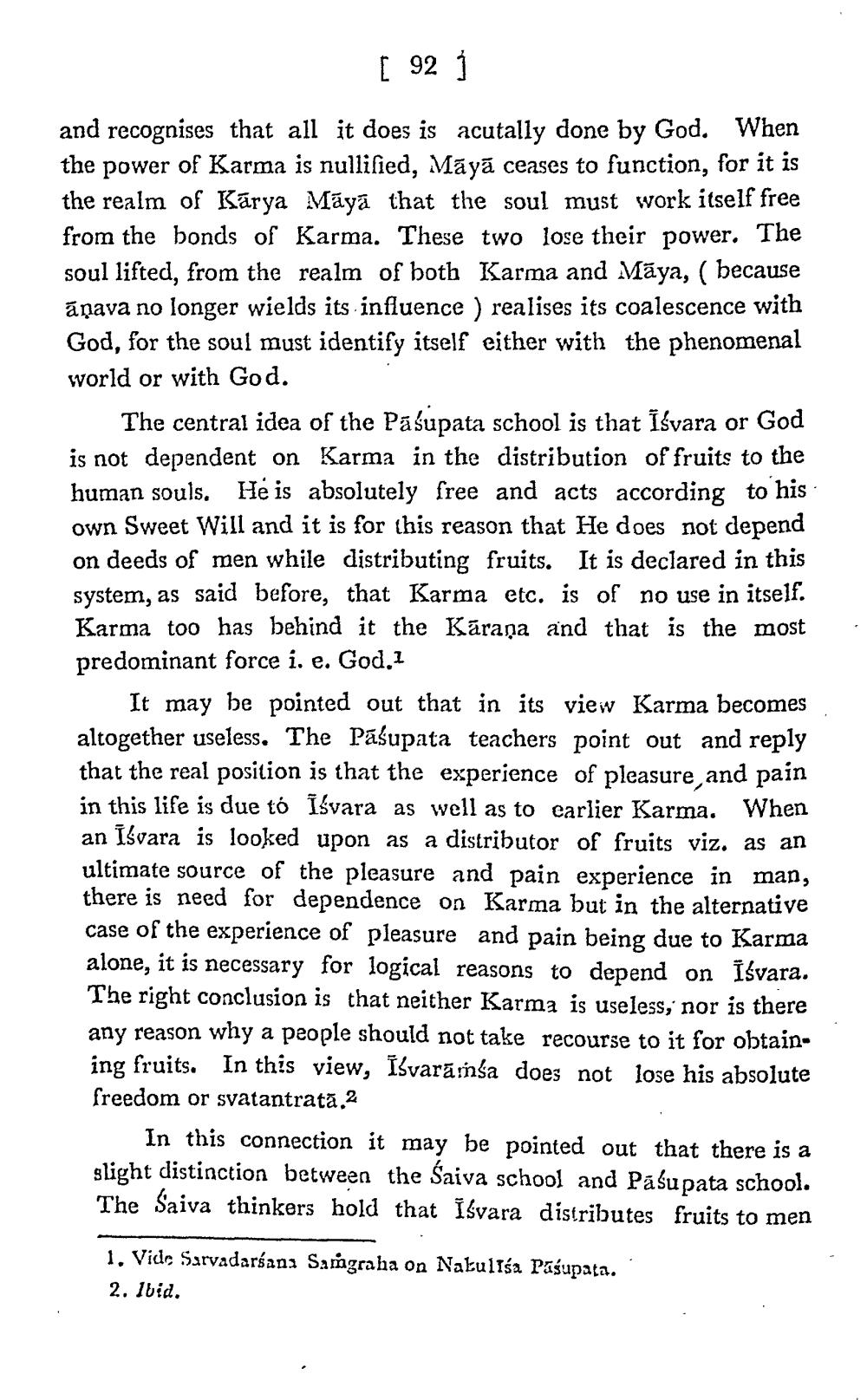________________
92 ]
and recognises that all it does is acutally done by God. When the power of Karma is nullified, Māyā ceases to function, for it is the realm of Karya Māyā that the soul must work itself free from the bonds of Karma. These two lose their power. The soul lifted, from the realm of both Karma and Māya, ( because āņava no longer wields its influence ) realises its coalescence with God, for the soul must identify itself either with the phenomenal world or with God.
The central idea of the Pasupata school is that Išvara or God is not dependent on Karma in the distribution of fruits to the human souls. He is absolutely free and acts according to his own Sweet Will and it is for this reason that He does not depend on deeds of men while distributing fruits. It is declared in this system, as said before, that Karma etc. is of no use in itself. Karma too has behind it the Kāraṇa and that is the most predominant force i. e. God.?
It may be pointed out that in its view Karma becomes altogether useless. The Pasupata teachers point out and reply that the real position is that the experience of pleasure, and pain in this life is due to īśvara as well as to earlier Karma. When an Isvara is looked upon as a distributor of fruits viz. as an ultimate source of the pleasure and pain experience in man, there is need for dependence on Karma but in the alternative case of the experience of pleasure and pain being due to Karma alone, it is necessary for logical reasons to depend on Išvara. The right conclusion is that neither Karma is useless, nor is there any reason why a people should not take recourse to it for obtaining fruits. In this view, İsvarāınsa does not lose his absolute freedom or svatantratā.2
In this connection it may be pointed out that there is a slight distinction between the saiva school and Pasupata school. The Saiva thinkers hold that Isvara distributes fruits to men
1. Vide Sarvadarśana Samgraha on Natulisa Pasupata. 2. lbid.




